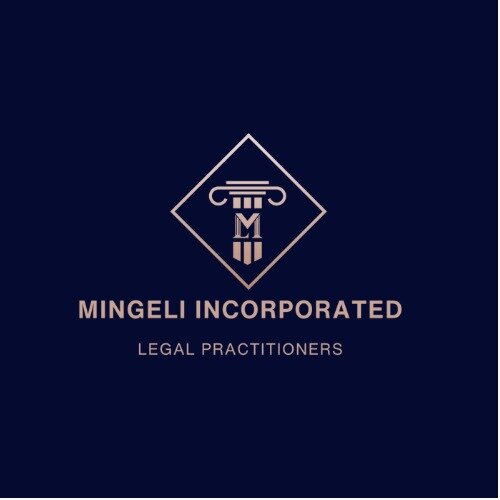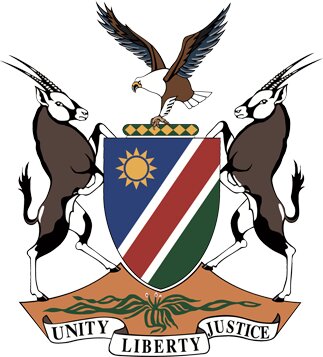Best Family Lawyers in Windhoek
Share your needs with us, get contacted by law firms.
Free. Takes 2 min.
Free Guide to Hiring a Family Lawyer
List of the best lawyers in Windhoek, Namibia
About Family Law in Windhoek, Namibia
Family law in Windhoek, Namibia, encompasses a broad range of legal matters that affect family relationships. This includes issues such as marriage, divorce, child custody, adoption, domestic partnerships, and inheritance. Family law aims to ensure fair and equitable resolutions to disputes while safeguarding the best interests of children and vulnerable family members. The Namibian legal system is a mix of civil law and customary law, and family law matters are often handled with respect to these diverse legal principles.
Why You May Need a Lawyer
Seeking legal advice in family law matters is crucial for navigating complex situations that can significantly impact your life and the lives of your family members. Common situations where people may need legal help include:
- Filing for divorce or separation
- Negotiating child custody and visitation rights
- Handling disputes over child or spousal support
- Drafting prenuptial or postnuptial agreements
- Adopting a child or establishing guardianship
- Resolving inheritance issues according to local or customary laws
- Domestic violence cases requiring protection orders
- Legal recognition of domestic partnerships or cohabitation agreements
An experienced family lawyer can provide guidance tailored to your specific needs and help protect your rights within the legal framework of Namibia.
Local Laws Overview
Family law in Windhoek is governed by both statutory and customary laws. Key aspects include:
- Marriage and Divorce: The Marriage Act and the Divorce Act govern legal aspects of marriage and divorce, respectively. Civil marriages and customary marriages are recognized, each with different legal requirements for dissolution.
- Custody and Maintenance: The Child Care and Protection Act outlines provisions for child custody and maintenance, focusing on the best interests of the child.
- Domestic Violence: The Combating of Domestic Violence Act provides protection for victims of domestic abuse, allowing for protection orders and legal recourse.
- Inheritance: The Administration of Estates Act and customary law play a role in how estates are divided among heirs, especially relating to communal lands and traditional family structures.
- Adoption and Guardianship: The adoption process is regulated to ensure the welfare of the child, with strict procedures to be followed for legal validation.
Understanding these aspects is essential for anyone dealing with family law matters in Windhoek.
Frequently Asked Questions
What is required to file for divorce in Namibia?
To file for divorce, one must meet residency requirements and present valid grounds for divorce as recognized by Namibian law, such as adultery or irretrievable breakdown of the marriage.
How is child custody determined?
Custody is primarily determined based on the child's best interests, considering factors like the parent's ability to care for the child, emotional bonds, and stability.
Can I get a prenuptial agreement in Namibia?
Yes, prospective spouses can enter into antenuptial agreements specifying property division and financial arrangements, which must be legally notarized.
What are my rights if I am a victim of domestic violence?
Victims can apply for protection orders under the Combating of Domestic Violence Act, which helps limit contact with the abuser and offers additional legal protections.
How does the adoption process work?
The adoption process requires assessments of the prospective parents and must be approved by the court, ensuring the child's welfare is prioritized.
Is mediation available for family disputes?
Yes, mediation is encouraged as a means to resolve disputes amicably, and it can be a useful tool in negotiations involving children or financial matters.
Can a child choose which parent to live with?
While the child's preference may be considered, the primary concern remains their best interests, with the court making the final decision.
How is spousal support calculated?
Spousal support is determined based on factors such as the length of the marriage, the financial situation of each party, and contributions to the household.
What are the steps for legal separation?
Legal separation involves a formal agreement detailing living arrangements, financial responsibilities, and child custody, which must be filed in court.
Can grandparents seek visitation rights?
Grandparents may apply for visitation rights, especially if it serves the child's best interests, by demonstrating a meaningful relationship with the child.
Additional Resources
For further assistance, consider reaching out to the following resources:
- Legal Assistance Centre: A non-profit providing legal aid and community education.
- Ministry of Justice: Offers information and services related to family law.
- Child Care and Protection Unit: Provides guidance on matters related to child welfare.
- Namibian Women’s Health Network: Supports victims of domestic violence with legal and emotional support.
Next Steps
If you require legal assistance in family law, consider taking the following steps:
- Consult with a Lawyer: Seek out a qualified family lawyer in Windhoek for personalized advice.
- Prepare Documentation: Gather relevant documents and information related to your case for your lawyer to review.
- Consider Mediation: Explore mediation as an alternative to court proceedings for a more amicable resolution.
- Educate Yourself: Familiarize yourself with your rights and obligations under Namibian family law.
Taking these steps can help ensure you receive appropriate legal guidance and support in navigating family law matters effectively in Windhoek, Namibia.
Lawzana helps you find the best lawyers and law firms in Windhoek through a curated and pre-screened list of qualified legal professionals. Our platform offers rankings and detailed profiles of attorneys and law firms, allowing you to compare based on practice areas, including Family, experience, and client feedback.
Each profile includes a description of the firm's areas of practice, client reviews, team members and partners, year of establishment, spoken languages, office locations, contact information, social media presence, and any published articles or resources. Most firms on our platform speak English and are experienced in both local and international legal matters.
Get a quote from top-rated law firms in Windhoek, Namibia — quickly, securely, and without unnecessary hassle.
Disclaimer:
The information provided on this page is for general informational purposes only and does not constitute legal advice. While we strive to ensure the accuracy and relevance of the content, legal information may change over time, and interpretations of the law can vary. You should always consult with a qualified legal professional for advice specific to your situation.
We disclaim all liability for actions taken or not taken based on the content of this page. If you believe any information is incorrect or outdated, please contact us, and we will review and update it where appropriate.
Browse family law firms by service in Windhoek, Namibia
Windhoek, Namibia Attorneys in related practice areas.
















